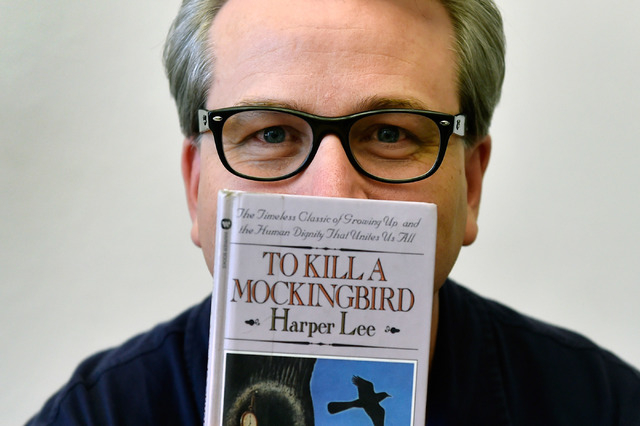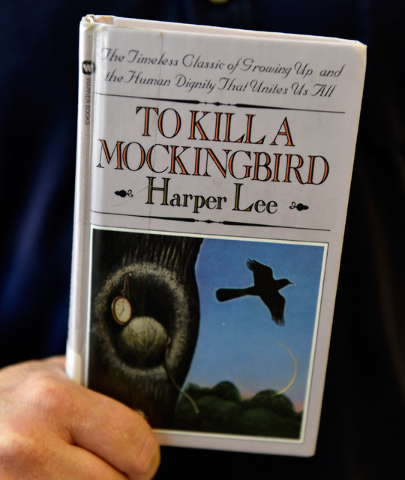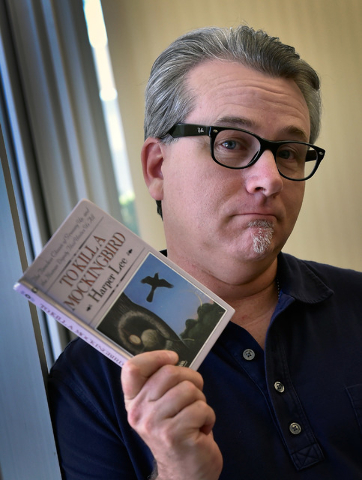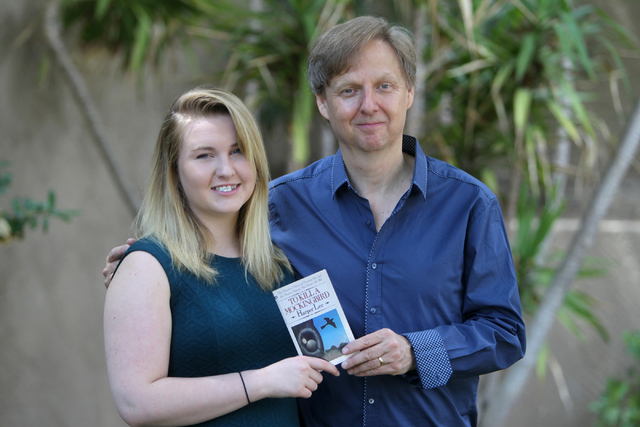How well do you know ‘To Kill a Mockingbird’?
“To Kill a Mockingbird.”
Part courtroom drama, part coming-of-age story, part indictment of racial bigotry and judicial injustice, the novel is set in a small Alabama town during the 1930s, and the characters created by Harper Lee — most notably principled small-town lawyer Atticus Finch and his daughter, Scout — are among American literature’s most recognizable.
The 1960 novel won the Pulitzer Prize, while an acclaimed 1962 film adaptation was nominated for eight Academy Awards and won three, including a Best Actor Oscar for Gregory Peck as Atticus.
Underscoring the mystique surrounding the novel — Dill was Truman Capote? — is that “To Kill a Mockingbird” was the only book Lee published.
Until now. On Tuesday, “Go Set a Watchman,” a sequel to “To Kill a Mockingbird,” will hit bookstores. According to its publisher HarperCollins, the novel was written by Lee in the mid-1950s, features characters from “To Kill a Mockingbird,” and takes place about 20 years after the events of the original story.
In honor of the new book — and the 55th anniversary of the publishing of “To Kill a Mockingbird” on July 11, 1960 — we asked a few notable Southern Nevada readers for their recollections of and perspectives on the classic novel.
Be warned that spoilers follow. But if you haven’t read it, “To Kill a Mockingbird” would make a fine summertime read.
PAT SPEARMAN
“To Kill a Mockingbird,” told “a very hard truth at the time it was written,” says state Sen. Pat Spearman, D-North Las Vegas, but the novel still has “parallels for today in our collective willingness to admit those hard truths still exist.”
While the story is fictional, the parallels between “the reality then and the reality now are staggering,” she adds.
Spearman can’t recall when she first read the book, but suspects it was during high school as assigned reading.
“I went to a predominately African-American school,” Spearman says, and “it was just so true. I was one of the first African-American students to integrate a high school in the South the year after Dr. King was killed. So when most people look back (on the book) and say, ‘Oh, my goodness,’ I remember.”
Spearman also remembers that the novel was something she couldn’t put down.
“In my own young mind it was like the writer stepped into my experience,” she says, asking what might happen if Spearman had been born in the wrong place and time.
“I grew up during the early days of the ’60s civil rights movement,” she says, so what others might take as “interesting fiction, people in my culture were actually living that experience.
“The narrative and the underlying theme of bigotry and simmering prejudices still exist,” Spearman says, and “not just in terms of ethnicity” but also, for example, in “the underlying disdain and simmering prejudice that exists toward members of the LGBT community.”
“The book reminds us again that we have not yet arrived at that utopic place that we all desire, which is equality for all.”
MAC KING AND ELIZABETH KING
Comedy magician Mac King calls himself “a big fan” of the book and says “my daughter is, too. She’s 14, and it’s her favorite book as well.”
Elizabeth first read the book as a school assignment at the end of her seventh-grade year. While she had heard “amazing things” about the novel, Elizabeth admits that, “I still, honestly, expected it to be a little bit boring, which was definitely not the case.”
“I have always been a fan of historical fiction in general,” Elizabeth adds, “but it’s also just such an exciting story.”
Elizabeth, who will begin her sophomore year of high school in the fall, since has reread “To Kill a Mockingbird” twice, and says each reading gives her a different perspective on the story.
“The first time I read it, I didn’t really understand a lot of what was going on,” she says, although “what I did understand I liked.”
Now, “I definitely understand everything that’s going on,” Elizabeth says, and each reading brings with it a deeper understanding of the story’s characters.
Mac King first read the book during his late 20s or early 30s, but had seen the movie adaptation — “one of my two or three favorite movies” — several times before that. He found Lee’s depiction of small-town Southern life familiar.
“I was born in a tiny town in Kentucky called Hopkinsville, Ky., and I’m of an age where that kind of life that’s portrayed in there, I kind of remember parts of that from when I was a little boy. And even though we moved from that tiny town of Louisville, Ky., which is pretty cosmopolitan, actually, for Kentucky, I still had relatives in a number of even smaller towns.”
“Sitting on the porch at dusk and that kind of weird atmospheric thing, is part of me,” King says. “I think that’s one of the things that resonated with me.”
Not to mention, he adds, the book’s themes of racial injustice and inequality.
“I went to an experimental high school in Louisville — 50 percent black, 50 percent white, 50 percent male, 50 percent female and it was an open-school sort of format, the so-called ‘hippie school,’ ” King says. “So I think the racial stuff and inequality that’s in there sort of resonated with me as well.”
JENNIFER CARR
“I love the book,” says Jennifer Carr, an assistant professor and director of academic success at the William S. Boyd School of Law at the University of Nevada, Las Vegas.
Carr’s 8-year-old son is named Atticus.
Carr’s ex-husband also is an attorney and “we could not agree on a name,” Carr says. “And ‘To Kill a Mockingbird’ is one of those books I find myself rereading once a year or whatever. I was so frustrated that he had all of these ridiculous names he wanted to name our kid, I threw the book on the bed and said, ‘I’m just going to name this kid Atticus.’ ”
And, Carr says, “we kind of thought it over and (said), ‘Yeah, that’s exactly it.’ ”
“I really like names that kind of give kids something to aspire to or that have meaning. For me, Atticus (Finch) is such an amazing person, he’s an amazing attorney and he’s also this wonderful dad.”
Carr first read the book before starting law school. “It actually was on a recommended reading list before you come to law school,” she says. “I had not read it, and I read it the first time and I just liked it so much.
“The first time you read it, it’s easy to pick up on the obvious stuff. It’s a David and Goliath story. Atticus, who is fighting the good fight. And then, when you read it again, you realize Atticus has nuance, so he’s not just your typical hero who is undaunted and hard-charging. He lost his wife, and he’s a single dad trying to raise these kids.”
Atticus also takes on what he probably realizes is a losing cause, but gives it his best anyway. “If you’re talking about professional ethics, Atticus represents, to a certain extent, the obligation of attorneys to take on representation that is unpopular,” Carr says.
“I think of Atticus as being the person I want to be. It’s one of those books I read every year, and every year I find something new in it. And I just think if a kid grows up to be like Atticus Finch, that’s not a bad thing.”
ANTONIO FARGAS
Antonio Fargas started acting when he was a teenager and remembers that Brock Peters, who portrayed Tom Robinson in the film, once saw a play in which he appeared.
So Fargas — you know him from “Starsky & Hutch,” but his credits include extensive work on the stage as well as serving as a mentor and teacher to students at the West Las Vegas Arts Center — appreciates “To Kill a Mockingbird” on several levels, from the skilled acting he saw in the movie to the value the book has from “a historical point of view.”
Fargas saw the movie as a kid and read the book in “my later grade school” or early junior high years.
“I think, like most novels, it was more involved and more intense and had much more” than the movie, he says. “You had to create (the story) in your imagination, and I think it was even more powerful than the images that were portrayed in the film adaptation.”
At the same time, the book was “quite intimidating, because we’re talking about racial issues,” Fargas says, and issues Americans were trying to come to grips with during the civil rights movement.
“I grew up in a multiracial area of New York City, and to be black or read things about the black experience or African-American experience was kind of unsettling, but something that had to be dealt with,” he says.
And, among white students, “just the perception of seeing the struggle that was involved in that story made it personal, whereas some young people just didn’t understand it or just took it as, sort of, privilege.”
GREG VESSAR
Greg Vessar has been teaching for about 24 years, moved to Las Vegas two years ago and now teaches seventh grade at Keller Middle School. He has taught “To Kill a Mockingbird” to several classes of 10th graders over the years, and first read it himself when he was in high school.
“I was just kind of taken with the character of Scout at the time,” Vessar says. “She kind of reminded me of what I picture my mother was like as a child, from stories I’d hear. And I didn’t think a whole lot about it otherwise.”
Then he began teaching the book. He figures he’s now read the book eight to 10 times, and says he gets something new out of it each time.
“I just love teaching it,” Vessar says. “In the past, I’ve done mock trials, with students taking characters to represent, and we try to use the evidence from the text itself.
“I love the book so much, I named my cat Scout,” Vessar added. “Scout was 18 when she passed away last year of old age, actually. But it was because the cat’s personality was so much like Scout, rambunctious and curious, all over the place.”
DEBBIE TINSLER
Debbie Tinsler, adult service librarian at the Rainbow Library, remembers leading a discussion group about “To Kill a Mockingbird” during the book’s 50th anniversary year.
Participants ranged in age from the late 20s to late 70s, and “we all agreed the themes are so applicable to today,” Tinsler says. “The book holds up so well historically.”
Tinsler can’t remember the first time she read the book, but says the film adaptation was one of her mother’s “absolutely favorite movies. So even my first memory of the story may be my mother talking about how much she loved the movie.”
But when Tinsler read the book she loved it, too, and says, “I think I even appreciate it more as an adult.”
Atticus Finch is “a man who in the face of adversity, in the face of a lynch mob, stands up for what he believes in. He’s a principled man and he’s such a good example of a father and a single parent in the book.”
Tinsler can relate to the small-town Southern setting, too. Her parents are from “very similar towns in Tennessee,” she says, “and even though we were Yankee cousins and grew up in Michigan, I spent a lot of time in small Southern towns.”
The gossip, the law, the church, “all these different things she writes so vividly about in the book,” Tinsler says.
But, mostly, she says, “To Kill a Mockingbird” is memorable because of Atticus Finch.
“It’s really nice to see somebody stand up for what they believe, and I think that’s what makes the book so timeless.”
Contact reporter John Przybys at jprzybys@reviewjournal.com or 702-383-0280 or follow @JJPrzybys on Twitter.





























